MedExPRO - Go From Running Sessions to Leading a Medical Exercise Practice
For more than three decades, Medical Exercise Training has proven its value.
Properly applied exercise restores function, preserves independence, and improves quality of life for people living with chronic disease, injury, and age-related decline.
But the environment around medical exercise has changed.
Healthcare no longer needs isolated practitioners delivering great sessions one client at a time.
Healthcare now needs professionally structured medical exercise practices—practices that can manage complexity, communicate clearly, document outcomes, and operate with the same reliability and predictability as medical and rehabilitation offices.
This is where many capable MedExPROs feel the tension.
They are good at what they do.
They get results.
They care deeply about clients.
But their practice hasn’t caught up to their capability.
If You’re Honest, Your Practice Probably Looks Like This
You’re confident in your exercise skills.
Clients improve under your care.
Doctors respect...
Bridging the Gap: A 5-Step Guide to Developing Medical Referral Relationships
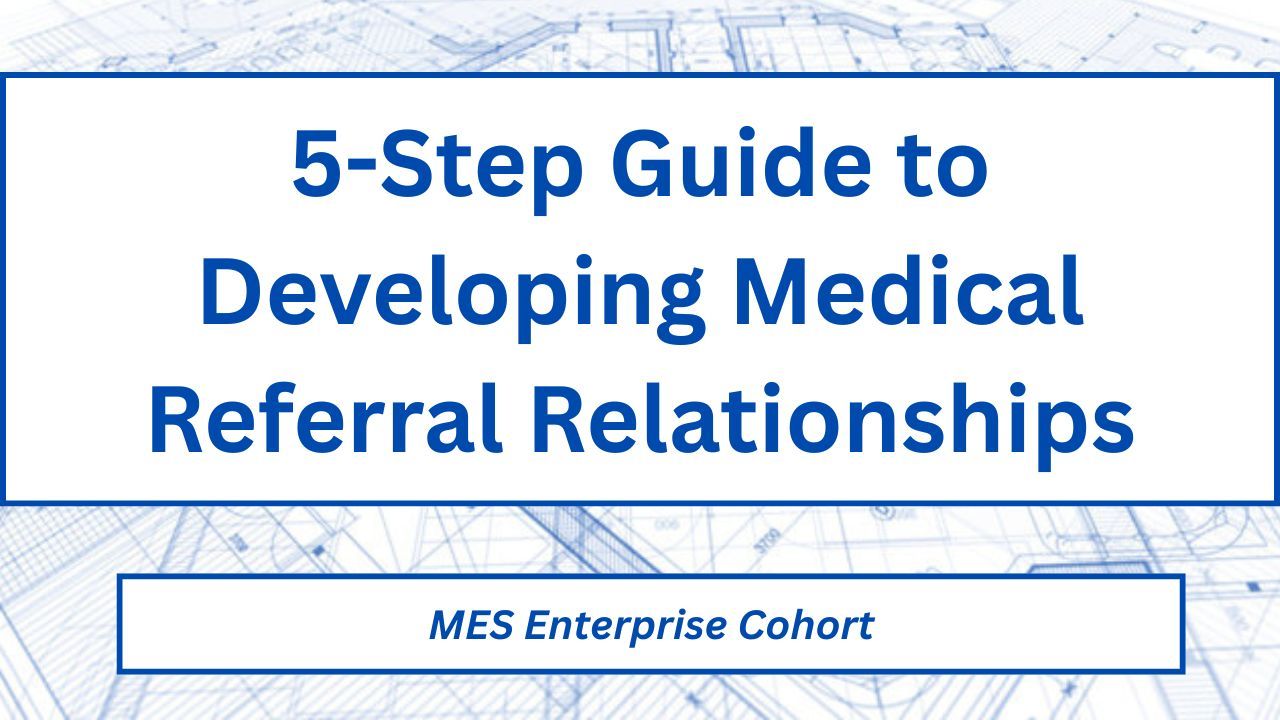
For the Medical Exercise Professional (MedExPRO), building referral relationships is not a marketing tactic—it is a professional responsibility. Referral relationships are how you move from being perceived as “a trainer who works with injuries” to being recognized as a trusted extension of the healthcare continuum – a Medical Exercise Specialist.
Since the earliest days of Medical Exercise Training in the mid-1990s, the role has been clear: accept the hand-off from physicians, physical therapists, and chiropractors once treatment has concluded, and apply structured, progressive exercise to improve functional capacity. Yet despite this clarity, many MedExPROs struggle to establish consistent referral sources.
Why?
Because the barrier is rarely knowledge.
The barrier is communication, confidence, and systems.
Too many capable MedExPROs hesitate to reach out to medical providers because they fear being exposed, dismissed, or misunderstood. Others approach doctors casually, without str...
3 Directives Every MedExPRO Must Master to Practice Medical Exercise Training with Confidence
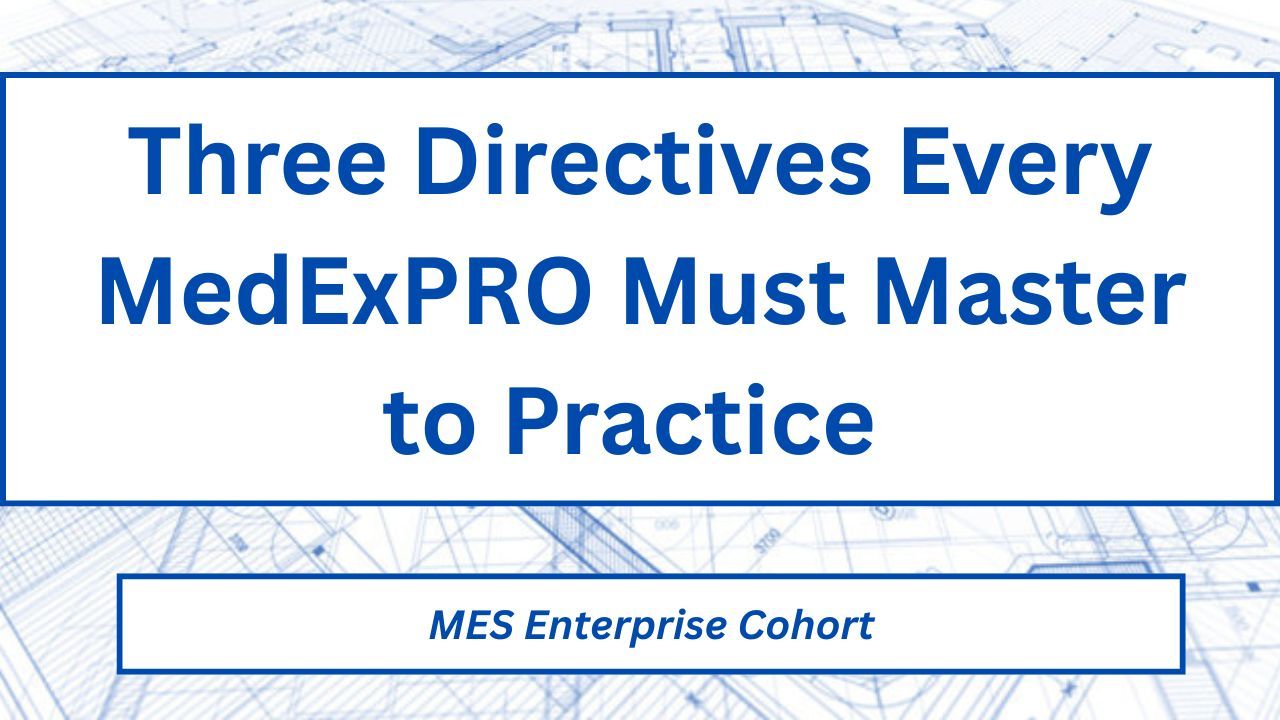
If you are a Medical Exercise Professional, you already know this truth:
The hardest part of your work isn’t exercise selection.
It’s knowing—with certainty—that what you’re doing is defensible, professional, and aligned with healthcare expectations.
Most MedExPROs don’t struggle because they lack skill.
They struggle because they lack clear governing standards for how assessment, training, and documentation are supposed to work together.
You assess. You train. You document.
But too often, those three activities operate as separate silos, instead of a unified professional system.
That’s where confidence breaks down.
That’s where referrals stall.
That’s where documentation feels forced instead of natural.
This article introduces a three-part series written specifically for MedExPROs who want clarity—not more techniques.
Why MedExPROs Feel Uncertain (Even When Results Are Good)
If any of this feels familiar, you’re not alone:
- You know clients are improving—but struggle to expl ...
Why Most Medical Exercise Practices Fail—and How the Right Systems Change Everything

Most Medical Exercise Professionals don’t fail because they lack knowledge, skill, or motivation.
They fail because they try to grow a physician-facing practice using fitness-industry thinking.
Certifications are accumulated. Sessions are sold. Marketing feels scattered. Referrals come in waves—then disappear. Documentation exists, but it doesn’t consistently build trust with physicians or support reimbursement conversations.
The result? Talented MedExPROs stuck operating as technicians inside businesses that never quite mature into true practices.
That is exactly the gap the 90-Day MedExPRO Roadmap was designed to address.
Medical Exercise Success Is a Systems Problem—Not a Motivation Problem
Healthcare does not respond to effort.
Healthcare responds to structure, clarity, and proof.
A referral-ready, reimbursement-capable Medical Exercise practice requires six foundational systems working together:
- A clearly defined professional identity
- Professional - level documentation ...
You’re Already Working With Medical Clients—Now It’s Time to Work With a System
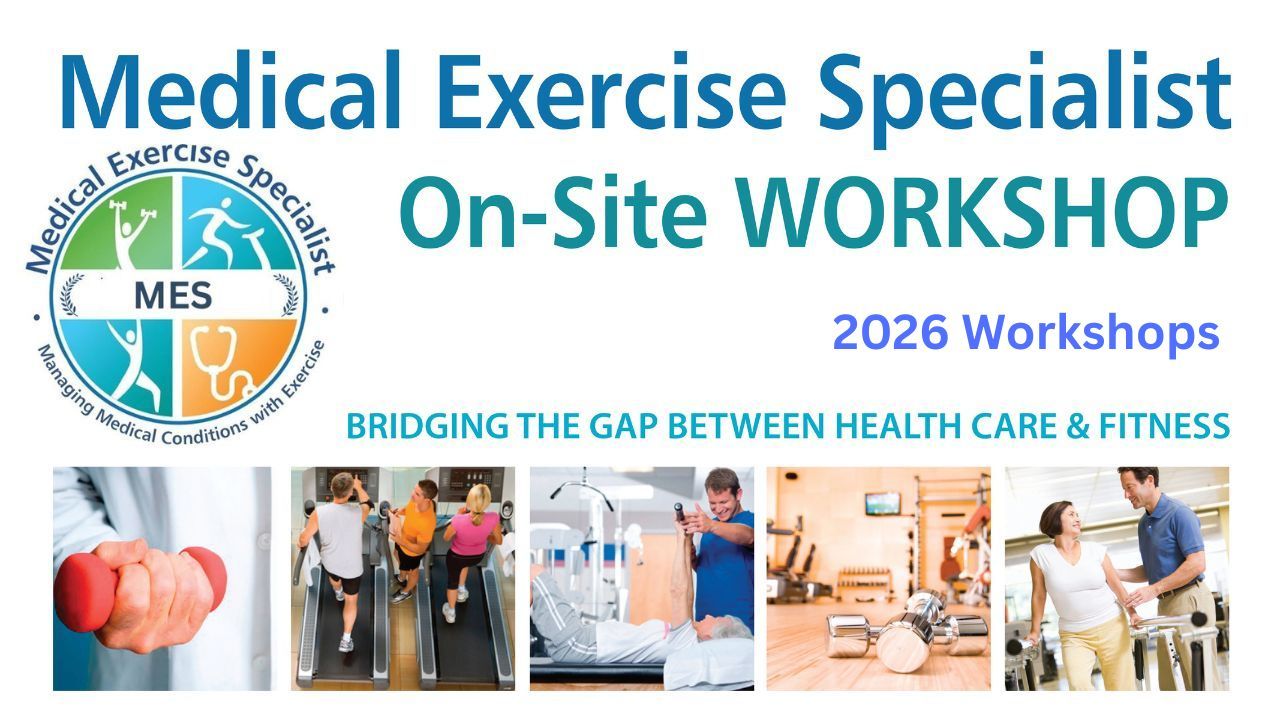
If you are a Medical Exercise Professional (MedExPRO), post-rehab specialist, or experienced trainer working with clients who have diagnoses, surgeries, chronic conditions, or post-therapy needs, there is an important truth you need to acknowledge:
You are already practicing medical exercise.
The real question is not whether you belong in this space.
The question is how you are practicing within it.
Are you relying on experience, caution, and good intentions—or are you working within a defined, professional system?
Experience Alone Is Not a System
Most MedExPROs I work with are thoughtful, ethical, and deeply committed to their clients. They slow progressions. They avoid obvious red flags. They do their best to stay within scope.
But eventually, experience alone reaches its limit.
You start asking questions like:
- Am I progressing this client appropriately—or just conservatively?
- Do I know why this exercise is appropriate for this condition?
- Could I confidently explain this ...
5 MES AI Prompts Every MedExPRO Needs to Build a Referral-Ready Practice in 90 Days
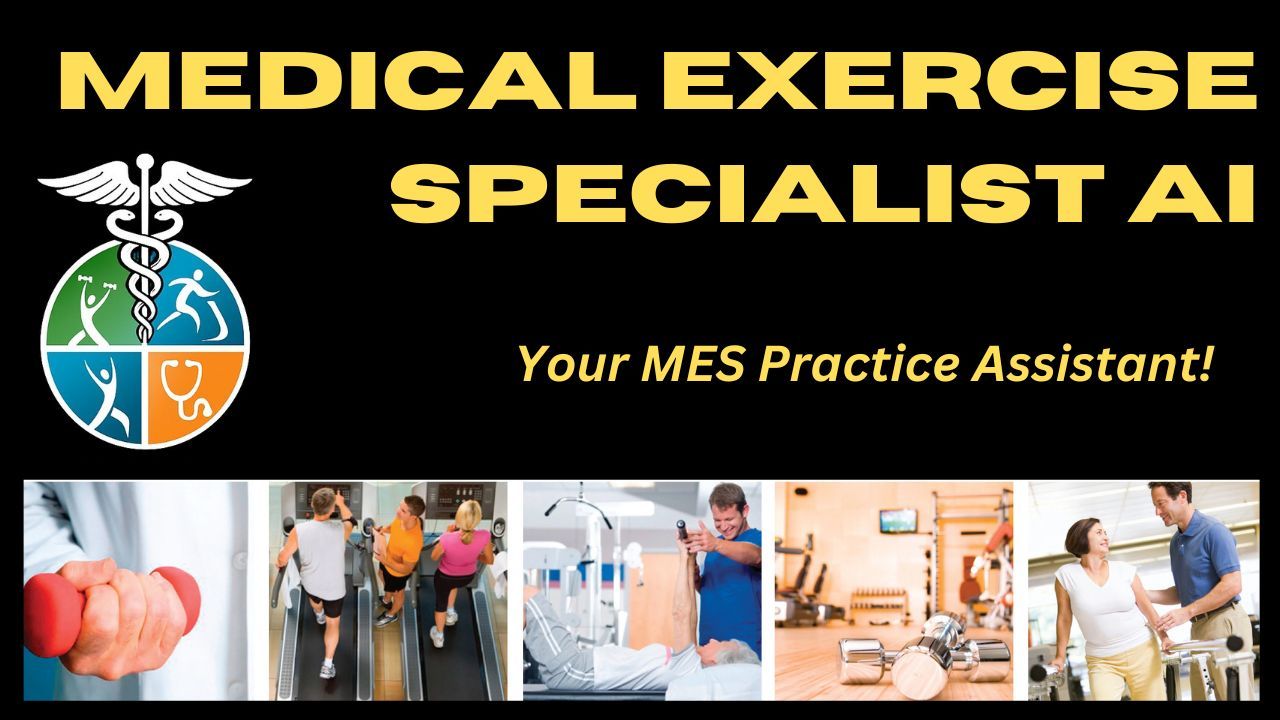
Every MedExPRO Needs an AI Practice Assistant—Not Another Certification
Medical Exercise Training is not about workouts.
It is about systems, standards, communication, and outcomes.
And yet, most Medical Exercise Professionals are still trying to operate like healthcare-adjacent professionals without healthcare-adjacent infrastructure.
That’s not a motivation problem.
That’s a systems problem.
Most MedExPROs don’t struggle because they lack exercise knowledge. They struggle because they are expected to:
- Think like a professional
- Document like a professional
- Communicate like a professional
- Market like a professional
- And manage risk like a professional
…all while working alone, without structured guidance.
That gap is exactly why MES AI exists .
MES AI Is Not “ChatGPT for Fitness”
Let’s be clear.
MES AI is not:
- A workout generator
- A diagnostic tool
- A treatment engine
- Or a generic AI chatbot
MES AI is a scope-safe AI Practice Assistant, built on more than 30 ye...
MET 101 eBook Tip 46 - Expensive Equipment Won’t Make You Good
Equipping Your Medical Exercise Practice: Functionality Over Flash
One of the most common—and most misunderstood—questions Medical Exercise Professionals ask is:
“What equipment do I need to offer medical exercise services?”
The better question is this:
“What equipment supports safe progression, risk management, and functional outcomes for medically referred clients?”
In Tip 46 of the MET 101 series, the message is clear:
Your practice is not defined by high-tech equipment—it is defined by your clinical reasoning and how you apply exercise to medical conditions.
The most important “tools” in your facility are not machines. They are:
- Your understanding of clinical anatomy
- Your working knowledge of pathology
- Your ability to apply exercise within medical boundaries
- Your skill in communicating with referring providers
Equipment supports those skills—it does not replace them.
🧠 Before Equipment, Your Practice Must Have These Foundations
Regardless of facility size, every pr...
Your 2026 Medical Exercise Practice Success Begins TODAY!!
Your Medical Exercise Practice in 2026 Will Not Improve by Accident
It Improves When You Install the Right Systems
Hello MedExPRO,
As this year closes, I want you to pause—not to dwell on what didn’t happen in 2025—but to make a deliberate decision about what will happen in 2026.
Because here’s the truth most Medical Exercise Professionals quietly carry:
You know how to train.
You care deeply about your clients.
You show up consistently.
Yet you still:
- hesitate before documenting
- second-guess what to say to physicians
- avoid outreach because you’re unsure how you’ll be received
- feel pressure every time income slows
- wonder if you’re “missing something” other professionals seem to have
That doesn’t mean you lack ability.
It means you’ve been operating without a complete professional system.
And in 2026, that gap matters more than ever.
Medical Exercise Opportunities Are Real — But Only for Prepared Professionals
Medical Exercise Training opportunities are expanding:
-
...
MedExPROs Keep The Revenue Flowing During the Holidays

Holiday Revenue Strategy: The MedExPRO Quick Cash Flow 7-Day Checklist
The Christmas and year-end holidays often lead to paused schedules, cancelled sessions, and delayed client rescheduling. That slowdown is normal—but it doesn’t have to mean stalled revenue.
The MedExPRO Quick Cash Flow 7-Day Checklist was designed as a strategic revenue bridge—a focused, professional way to generate income and momentum during periods when regular training sessions temporarily slow.
Rather than relying on ongoing weekly sessions, this checklist helps MedExPROs:
-
create short-term revenue opportunities that don’t depend on full client schedules
-
engage post-discharge clients and community groups who remain active during the holidays
-
strengthen referral credibility so January begins with momentum—not a cold start
In just seven structured days, the checklist outlines how to:
-
onboard new clients through post-discharge and community-based services
-
demonstrate professional do
...
Medical Exercise Specialists...Renew Your Certification Before 2025 Ends
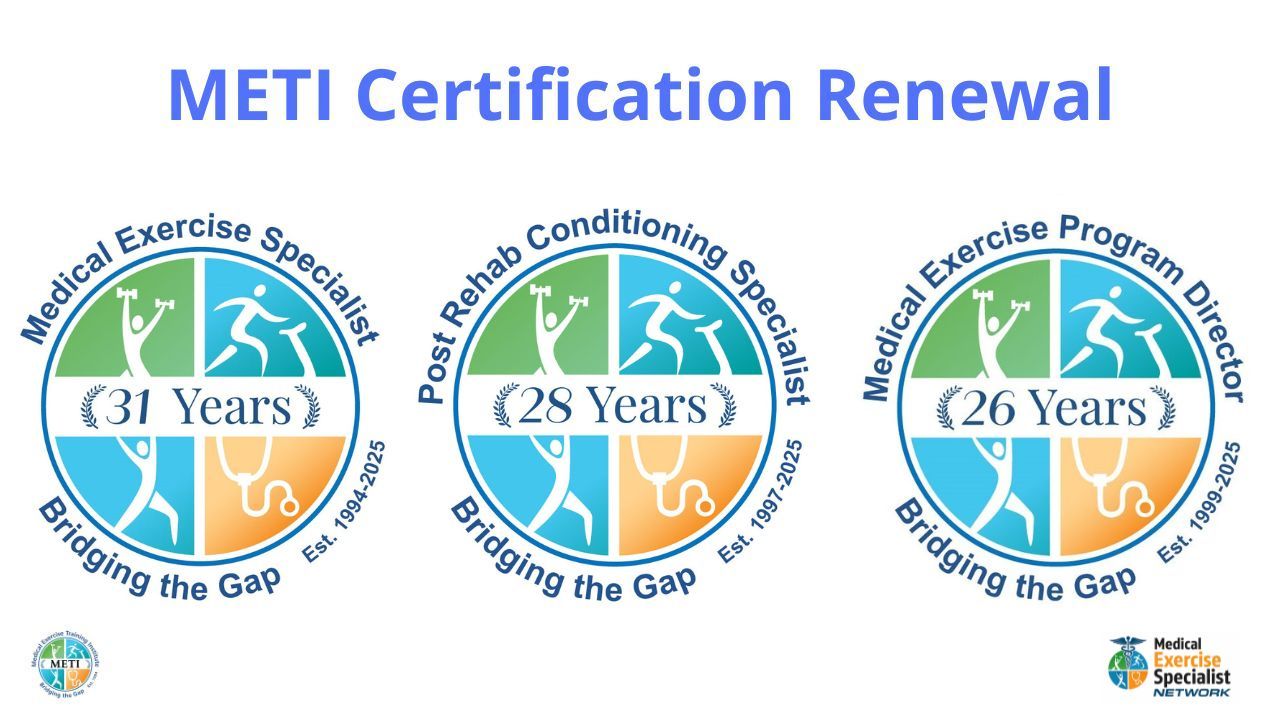
Important Reminder: Certification Renewal Before the End of 2025
This is a reminder to all Certified Medical Exercise Specialists (MES), Post Rehab Conditioning Specialists (PRCS), Medical Exercise Program Directors (MEPD), and Advanced Medical Exercise Specialists (AMES) to review the status of your professional certification and complete your renewal before the end of 2025 if your certification has expired.
Maintaining an active certification is a critical part of professional responsibility within medical exercise training. Active status demonstrates your continued commitment to professional standards, ethical practice, and alignment with METI’s educational and scope-of-practice guidelines. It also ensures your credential remains current when communicating with clients, physicians, referral sources, and healthcare organizations.
Why Renewal Matters
- Confirms your credential is active and current
- Reinforces your professional standing within the METI community
- Supports credibil ...
